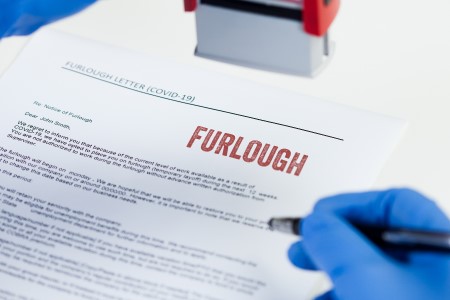
When it comes to expense, it’s all relative. Bridge loans, alternative forms of flexible finance, can be costlier than their mainstream counterparts. But this expense is short-term in nature.
Bridging loan terms typically last mere months and are designed to be exited quickly onto traditional finance or by other means, such as selling an asset. You need to remember that while there may be cheaper deals on the high street, there may not be a traditional mortgage or long-term solution suitable for your individual circumstances – especially if they are slightly complex. Mainstream lenders have pulled deals and tightened their criteria as the economy changed and this has left some borrowers without the finance they need to continue with their plans.
Bridging loans can provide you with fast and flexible finance for your residential and commercial investments. Most of the time, you use some form of collateral as security, such as real estate or stock inventory. The lengths can vary depending on the bridging lender involved. At MFS, for example, our loan products are available from 3 to 24 months and are secured on property only.
Bridge loans can be difficult to understand, and many of our clients often ask, ‘are bridging loans expensive?’. As such, this blog will investigate their various fees that can incur. We’ll examine how expensive bridging loans are, and how you can justify these expenses.
Are bridging loans expensive?
Like any loan, the interest rate and the duration of the loan will have the biggest impact on how expensive a bridging loan is.
These charges will change depending on what you use your loan for. This could be to renovate a property, buy a house, buy land, or for commercial property investments. This also therefore means that the charges will vary dependent on the lender you use.
Moreover, the longer a loan term is, the more you will be expected to pay. Ultimately, to answer the question, ‘Are bridging loans expensive?’ one must consider the circumstances of each individual case.

What fees should you expect with MFS?
Here at MFS, all our cases have an underwriter assigned to them from day one. As such, you’ll never be left in the dark. You’ll know what fees are applicable and won’t be hit by any unexpected expenses.
Across all our products, there are no admin fees levied. Commitment fees are also refunded on drawdown. We have an arrangement fee, which starts from 1% of the gross loan amount. There may be an exit fee applicable, which will be dependent on the type of investment you’re making, but you will be informed of whether this applies to your loan on application.
But, outside of our services, you’re likely to come across a number of industry specific fees.
Product Fees:
Overall, most lenders will charge you a product fee for the delivery of a loan. This fee is typically calculated as a percentage of the amount being borrowed and can range between 1.5% and 3%. Normally, product fees are charged at 2%.
For example, if you are looking for a loan of £200,000, the product fee would be £4,000. However, typically, if you are taking out a very large loan the fee may be lowered or waived altogether.
Broker fees:
While you can approach lenders directly, you may want to employ the services of a bridging loan broker. They can help find the best possible financial product for your circumstances and get all the complex paperwork completed properly.
Again, broker fees are often calculated by a percentage of the loan amount. These percentages can range between 0.5% to 2%. It could also be a flat fee.
For most borrowers, it may be worth shopping around when looking for a broker to make sure that they are able to deliver the type of finance you require. If they already deal with specialist finance, they will know how the process and fees for the products work.
Valuation & survey fees:
What a bridge loan will be used for is one of the main factors that will determine how expensive the funding is. Lenders will often want a property to be inspected to see whether it’s worth the loan you’re after. They’ll also want to see it’s in good condition in case they need to repossess and sell the property if you are unable to pay back the loan.
Generally, the fees may be more expensive the higher in value a property is. Most borrowers can expect to pay between £300 and £900 for a valuation.
Deposit:
Bridge loans do not typically have a ‘deposit’ as such, however there will likely be a maximum loan-to-value that is able to be achieved on a property. At MFS, our maximum loan-to-value (LTV) is 75%, meaning that the other 25% of a property’s value would need to be covered by yourself.
Typically, the lower the LTV of the bridging loan, the cheaper it will become.

How to get an in-expensive bridging loan
The obvious next question after ‘are bridging loans expensive?’, is how to get the best and cheapest bridging loan for your needs.
As such, it’s important that you assess your options and fully comprehend the product that you’re applying for. This is especially important for bridging loans, which can offer very niche solutions.
By employing a broker, you can go some way in finding a cheap bridging loan that will match your unique financial needs. However, it’s also vital that you employ the right lender, as they can make all the difference in how expensive a bridging loan is.
Brokers regularly bring their clients back to us understanding this. They know our flexibility and speed can provide the best outcomes for borrowers. We provide a bespoke service, where all our products can be tailored to fit a borrower’s circumstances.
Can I trust bridging lenders?
It is important for you to trust your lender. It is therefore wise for you to use a lender with a good track record of delivery and flexibility. The crucial element of trust, however, will be dependent on transparency. The importance of this, is why we underwrite our deals from the start of the application process.
This means we lay out all the fees, terms, and rates that you and your broker will face for your loan on day one.
This approach allows you to take the loan out with confidence. You know you won’t be hit with any unexpected or surprise fees when the loan comes to its conclusion.
MFS provides value for money
As we have described, bridging loans can be an expensive form of specialist finance. Specialist finance can support those who struggle to get far with mainstream lenders. We’re happy to work with borrowers that the banks may not have appetite for, including those with CCJs, adverse credit histories, or bankruptcies to their name.
Bridging expenses can be relatively high to reflect this risk. However, the extra expense could be worth it where borrowers find reliability, flexibility, and speed. MFS can provide all of this and more. We are a well-established, specialist lender with a 15-year track record of providing quality bridge loans.
We offer reliability, with a highly experienced underwriting staff who specialise in complex circumstances. They can support you and your broker, who can rest assured that rates will not be changed once terms are agreed upon.
Moreover, to help you in special or complex circumstances, we do not use a tick-box criteria. Instead, we take you and the property into consideration by assessing your individual merits. This means we can provide finance for complex deals other lenders might normally shy away from.
Finally, we can move incredibly quickly when an enquiry is made. We’re able to respond to you and your broker within 4 hours. We can issue funding in as little as 3 days, underlining our ability to move as quickly as the market does.
Check our bridging loan calculator to get an instant estimate of what you can borrow and what it would cost you.
Disclaimer
MFS are a bridging loan and buy-to-let mortgage provider, not financial advisors. Therefore, Investors are encouraged to seek professional advice.










